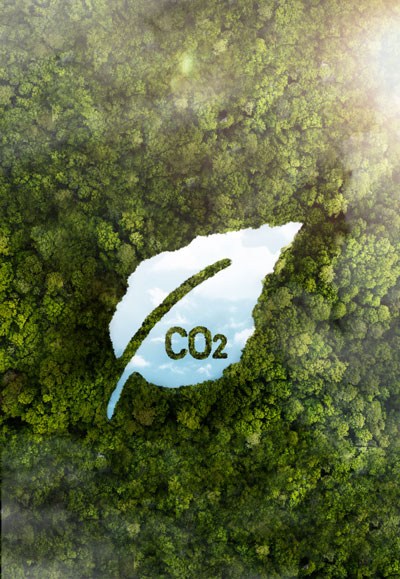The Energy Conservation Amendment Bill 2022 which has already been passed by both houses of Parliament and will now go to the President of India provides for a carbon credit trading scheme and empowers the Central Government to establish carbon markets in India.
Under this Bill, the central government or an authorized agency will issue carbon credit certificates to companies or individuals registered and compliant with the scheme. These carbon credit certificates will be tradeable in nature.
To understand this abovementioned scheme, we need to understand the concept of Carbon credit and its types:
What is Carbon credit?
- A carbon credit scheme is devised as a mechanism to reduce greenhouse gas emissions.
- Carbon Credit is a permit that allows the owner of a factory or business to emit a specific amount of carbon dioxide or other greenhouse gases.
- One credit allows for the emission of one ton of carbon dioxide or another greenhouse gas equivalent such as methane and nitrous oxide
What is a carbon offset?
- A carbon offset means the reduction of Carbon dioxide emissions, the principal cause of climate change.
- If an organization is engaged in any activity or in a project that reduces carbon dioxide emissions, every ton of emissions reduced results in the creation of one carbon offset. Once an offset is created, it can be retained by the organization that completed the project, or it may be traded on a voluntary carbon market or Project developers can then sell these offsets to finance their projects. There are different types of carbon reduction projects
For Example – Renewable Projects
What are the types of carbon markets?
- Voluntary markets: Voluntary markets is a market where trading of carbon credit is done on a voluntary basis. In this market, the emitters of greenhouse gas like corporations, private individuals, and others – buy carbon credits to offset the emission CO 2 or equivalent greenhouse gases. There are traders and online registries where climate projects are listed and certified credits can be bought also credit can be bought from entities that are already engaged in projects that reduce, remove, capture, or avoid emissions.
- Compliance markets: set up by policies at the national, regional, and/or international level and are officially regulated. The countries that have joined these markets are those that have accepted and adopted the emission limits established in the Framework of the United Nations Convention on Climate Change. (UNFCCC).
 599, Udyog Vihar Phase V, Sector-19, Gurugram, Haryana – 122008
599, Udyog Vihar Phase V, Sector-19, Gurugram, Haryana – 122008  info@startsolar.co.in
info@startsolar.co.in



